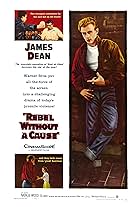Unprecedented access to the New York Times newsroom yields a complex view of the transformation of a media landscape fraught with both peril and opportunity.Unprecedented access to the New York Times newsroom yields a complex view of the transformation of a media landscape fraught with both peril and opportunity.Unprecedented access to the New York Times newsroom yields a complex view of the transformation of a media landscape fraught with both peril and opportunity.
- Awards
- 3 wins & 10 nominations total
- Director
- Writers
- All cast & crew
- Production, box office & more at IMDbPro
Storyline
Did you know
- Quotes
Shane Smith: I'm a regular guy and I go to these places and I go, "OK, everyone talked to me about cannibalism, right? Everyone talked about cannibalism." Now I'm getting a lot of shit for talking about cannibalism. Whatever. Everyone talked to me about cannibalism! That's fucking crazy! So the actual... our audience goes, 'That's fucking insane, like, that's nuts!' The New York Times, meanwhile, is writing about surfing, and I'm sitting there going like, 'You know what? I'm not going to talk about surfing, I'm going to talk about cannibalism, because that fucks me up.'
David Carr: Just a sec. Time out. Before you ever went there, we've had reporters there reporting on genocide after genocide. Just because you put on a fucking safari helmet and looked at some poop doesn't give you the right to insult what we do. So, continue.
- ConnectionsFeatured in De wereld draait door: Episode #6.173 (2011)
- SoundtracksLost in Detroit
Written and performed by Rolfe Kent
From the motion picture Up in the Air (2009)
Courtesy of Paramount Pictures
There is some argument given towards what constitutes journalism, but for me the real guts of the matter boils down to our absolute NEED for investigative reporting. I have always given value to bulldog reporting as a checks and balances for our system. Maybe, just maybe, our public officials and corporate leaders will toe the line if they are being watched. Sure, we can all rattle off a long list of when that hasn't been the case, but I truly believe, having reporters following and snooping does make a difference in the actions of those in charge ... and even if it doesn't, it certainly makes a difference in the accuracy and depth with which their actions are written about.
The filmmaker has been given substantial access to the media desk inside the newsroom. We even get to sit on a portion of the morning meeting where the senior editors decide what the lead stories will be. Personally, I would have loved a couple more hours of just that! But just as fascinating is how Bruce Headlam manages the media news, and in particular, star reporter David Carr. Mr. Carr is a hardened reporter with the spectacular ability to cut directly through to the important point and focus on the details, verify those details, and then summarize in a concise, understandable manner. We see this in full beauty with his handling of the crisis and scandal at the Chicago Tribune under Sam Zell's banner.
Today, we like our news spoon fed to us in 20 second sound bites. So we find our favorite websites and we scan the headlines, which themselves are scans of news stories. My favorite moment of the movie occurs on a discussion panel when David Carr holds up a printout of the home page of an "aggregator". Moments later he makes the point that without real reporters and news teams (like the NYT), this aggregator's home page would look quite different ... he then holds up that same home page with 90% of the stories cut out because their source is a real news organization.
Some attention is paid to Twitter and other social media outlets. This seems to be finally accepted by the reporters as being effective for two things: a delivery system for information and a grapevine with lightning speed. Of course, no verification is required for a "news" story to hit Twitter, and therein lies its limitation.
We get interviews from both Gay Talese and Carl Bernstein on the importance of news reporting. Evidence is provided through mentions of the Pentagon Papers, Wikileaks and Watergate. Judith Miller and Jayson Blair are topics that embarrassed and did significant damage to the industry ... but changes were adopted to (hopefully) prevent re occurrence. The News of the World scandal is too new to have made the film, but it certainly would have added a fascinating subtext to it.
The bankruptcy trail of so many newspapers is discussed, along with the possibility of this happening at The Times. Personally I wish more detail had been provided on the survival strategy of this institution. Since the release of the film, there has been a change in the Executive Editor position. Bill Keller, who is featured prominently in the morning meetings, has stepped down and been replaced by Jill Abramson. Ms. Abramson is charged with driving and building online presence and revenue. We should all be wishing her success as the world is a better place with The New York Times.
- ferguson-6
- Jul 16, 2011
- Permalink
Details
- Release date
- Country of origin
- Official sites
- Language
- Also known as
- Page One: Inside the New York Times
- Production companies
- See more company credits at IMDbPro
Box office
- Gross US & Canada
- $1,067,028
- Opening weekend US & Canada
- $28,911
- Jun 19, 2011
- Gross worldwide
- $1,077,982
- Runtime1 hour 32 minutes
- Color
- Sound mix
Contribute to this page































